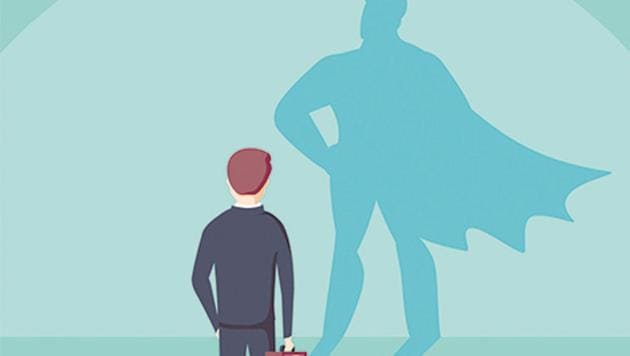Know your heroes and enemies: Life Hacks by Charles Assisi
The day jobs of heroes insist they ask tough questions such as what are the range of outcomes possible in the future and the impact of their decisions on others
Who are your heroes? Who are you enemies? Are heroes and enemies worth expending time on?

All interesting questions. Because in attempting to answer each of them, what emerges are more questions with pointers to mental models on how to examine the act of living.
Who are your heroes?
This question occurs in the memos Howard Marks, the co-founder of OakTree Capital Management, used to circulate (now available as a book, The Most Important Thing) among subscribers to his newsletter.
Most people, his observations suggest, answer this question on the basis of “first-order thinking”. That is, they just answer a question without considering the consequences.
To do that, mental muscle of an altogether different kind is needed. People who do that are second-order thinkers. To engage with thinking of this kind, a person must imagine the probable outcomes that can emerge from every decision over multiple periods of time. This, because the outcome of a decision can be different at different points in time in the future. Not just that, they consider the people their decisions impact.
Decision-making of this kind is difficult. Personal experience from the field while researching Project Aadhaar and interacting with veteran bureaucrats suggest those who craft public policy are among the finest second-order thinkers. While most stay behind the scenes and are reviled in public, they are acutely aware of how every decision they make, can impact millions in the hinterlands. But they don’t care what popular perception of them may be because their day jobs insist they ask tough questions.
•What are the range of outcomes possible in the future?
•What do I think will happen in the future on the basis of my decision now?
•What is the probability that I am right now and what evidence from the past do I go by?
•What does everyone else think the of future outcomes?
•How does my expectation about the future differ from what everyone else thinks?
Only a thin minority make brave attempts to answer questions such as these — both in their personal and professional lives. Those who attempt to do it are the ones I think of as heroes.
Who are your enemies?
Enemies are of three kinds.
1.Distraction and inability to focus when it matters. It comes in the way of second-order thinking
2.Ideologues wedded to any ideology
3.Social media trolls
Does it help to have heroes and why?
Yes. Because they point to where True North lies.
Does it help to have enemies and why?
Yes and no!
The first kinds are personal demons and must be slayed.
As for the second kinds, ideologues, they inevitably challenge fondly held assumptions and compel me to work hard to intellectually test and articulate my position.
Then there are trolls. They are irrational and obsessed with winning. Engaging with them means going down rabbit holes.
What it boils down to then is this: Heroes don’t wear capes, nor does heroism exist in movies — instead it lives among those who chose to emulate outstanding traits that otherwise exist in a few individual clusters. When it comes to enemies, they are either demons that exist within and must be wrestled with or distractions that lie outside and are best ignored.
(The writer is co-founder at Founding Fuel & co-author of The Aadhaar Effect)






